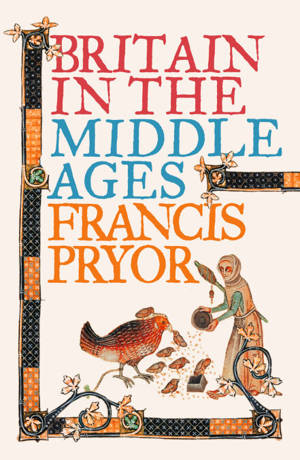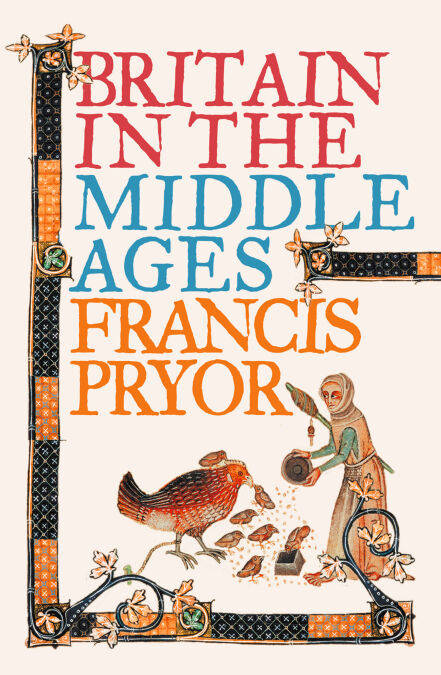
Je cadeautjes zeker op tijd in huis hebben voor de feestdagen? Kom langs in onze winkels en vind het perfecte geschenk!
- Afhalen na 1 uur in een winkel met voorraad
- Gratis thuislevering in België vanaf € 30
- Ruim aanbod met 7 miljoen producten
Je cadeautjes zeker op tijd in huis hebben voor de feestdagen? Kom langs in onze winkels en vind het perfecte geschenk!
- Afhalen na 1 uur in een winkel met voorraad
- Gratis thuislevering in België vanaf € 30
- Ruim aanbod met 7 miljoen producten
Zoeken
Britain in the Middle Ages E-BOOK
An Archaeological History (Text only)
Francis Pryor
E-book | Engels
€ 8,99
+ 8 punten
Omschrijving
This ebook edition does not include illustrations.
As he did in ‘Britain B.C.’ and ‘Britain A.D.’, eminent archaeologist Francis Pryor challenges familiar historical views of the Middle Ages by examining fresh evidence from the ground.
The term 'Middle Ages' suggests a time between two other ages: a period when nothing much happened. In his radical reassessment, Francis Pryor shows that this is incorrect and that the Middle Ages were actually the time when the modern world was born. This was when Britain moved from Late Antiquity into a world we can recognize: roads and parishes became fixed; familiar institutions, such as the church and local government, came into being; industry became truly industrial; and international trade was now a routine process.
Archaeology shows that the Middle Ages were far from static. Based on everyday evidence, Pryor demonstrates that the British agricultural and industrial revolutions had their roots in this era – as did the explosion of British maritime power in the late 1700s. It stresses the strength of development at the expense of 'revolution' and the profound effect the Black Death had on loosening the grip of the feudal system.
The Middle Ages can now be seen in a fresh light as an era of great inventiveness as the author examines such topics as 'upward mobility'; the power of the Church; the role of the Guilds as precursors of trade unions; and the importance of transport infrastructure such as roads, bridges and shipbuilders.
As he did in ‘Britain B.C.’ and ‘Britain A.D.’, eminent archaeologist Francis Pryor challenges familiar historical views of the Middle Ages by examining fresh evidence from the ground.
The term 'Middle Ages' suggests a time between two other ages: a period when nothing much happened. In his radical reassessment, Francis Pryor shows that this is incorrect and that the Middle Ages were actually the time when the modern world was born. This was when Britain moved from Late Antiquity into a world we can recognize: roads and parishes became fixed; familiar institutions, such as the church and local government, came into being; industry became truly industrial; and international trade was now a routine process.
Archaeology shows that the Middle Ages were far from static. Based on everyday evidence, Pryor demonstrates that the British agricultural and industrial revolutions had their roots in this era – as did the explosion of British maritime power in the late 1700s. It stresses the strength of development at the expense of 'revolution' and the profound effect the Black Death had on loosening the grip of the feudal system.
The Middle Ages can now be seen in a fresh light as an era of great inventiveness as the author examines such topics as 'upward mobility'; the power of the Church; the role of the Guilds as precursors of trade unions; and the importance of transport infrastructure such as roads, bridges and shipbuilders.
Specificaties
Betrokkenen
- Auteur(s):
- Uitgeverij:
Inhoud
- Aantal bladzijden:
- 352
- Taal:
- Engels
Eigenschappen
- Productcode (EAN):
- 9780007514755
- Verschijningsdatum:
- 31/07/2013
- Uitvoering:
- E-book
- Beveiligd met:
- Adobe DRM
- Formaat:
- ePub

Alleen bij Standaard Boekhandel
+ 8 punten op je klantenkaart van Standaard Boekhandel
Beoordelingen
We publiceren alleen reviews die voldoen aan de voorwaarden voor reviews. Bekijk onze voorwaarden voor reviews.









